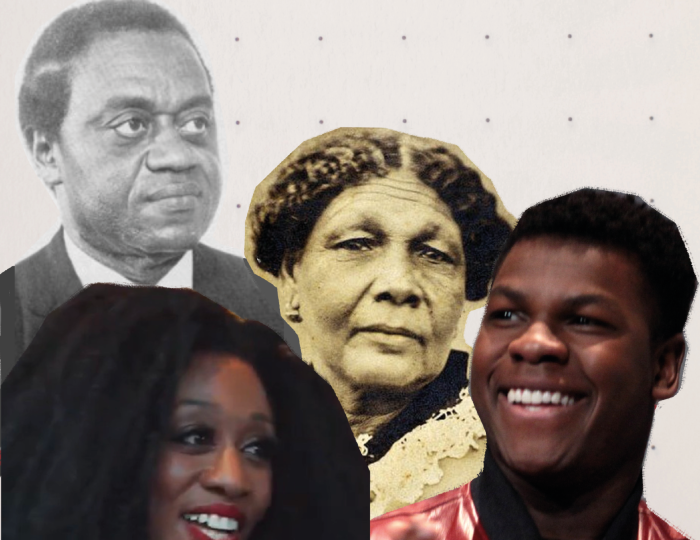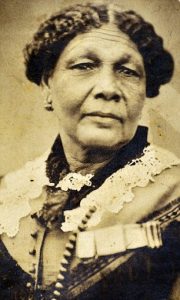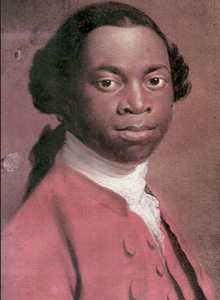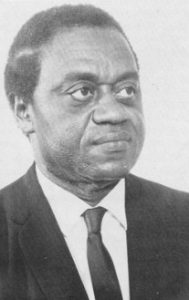Guiding planes for God’s glory: an interview with John Archer
Shape tracking. Sequential memory. Reactive avoidance. Most of us don’t even know what these words mean, let alone use them in our daily lives. But John Arche...
Read

I’m a white woman. I’m writing about Black History Month.
You’ll likely have read heaps of articles about this very topic, but I wanted to share authentically and vulnerably about how, this year, Jesus has challenged my attitudes towards race. He’s encouraged me to question my assumptions, reconsider my worldviews, and even identify my unconscious biases. There’s so much more to learn. And it’s easy to feel overwhelmed.
Over the years, I’ve been inspired by the Black heroes who’ve shaped history and made remarkable contributions to literature, fashion, music, sport, business, politics, academia, healthcare, and more. I’ve been shocked, saddened, and moved by stories of racial prejudice, both past and present. And I’ve got a confession to make.
Before now, I’ve always been a passive onlooker. But then, this year, a switch flicked. I asked myself what Jesus would think, say, and do when faced with deep divisions, oppressive systems, and cultural chasms. I turned to the Bible and was reminded that he loves and saves people from every tribe, tongue, and nation (Revelation 7:9). That means whatever the colour of our skin, we’re called to actively join in Jesus’ work to renew this world – to reduce inequality, fight racism, end oppression, and stop violence, one small step at a time.
A key part of that is foregrounding Black people’s stories, perspectives, and contributions. With that in mind, here are five brilliant stories of Black Christians making a difference with Jesus in their daily lives, through the gifts and skills he gave them – often in the face of serious adversity.
Mary Seacole | Caring against the odds

First up is Mary Seacole. What a woman. Born in 19th-Century Kingston, Jamaica to a Scottish father and Jamaican mother, she was an accomplished doctor who pursued excellence in herbal remedies. She was also a compassionate and generous nurse, caring for victims of cholera and yellow fever epidemics in Jamaica. Later, in response to reports that medical care for soldiers was breaking down in Crimea, she approached the British War Office and asked to be sent as an army nurse. But she was refused. Undeterred, she self-funded her travel, putting the plight of the soldiers above her own comfort and security.
She returned to Britain with very little money. But soldiers who’d benefitted from her care wrote to newspapers praising her actions and imploring people to come to her aid. And the widespread admiration and affection for Mary was again demonstrated by the fundraising gala held on her behalf, attended by over 80,000 people. It was therefore no surprise that her autobiography, The Wonderful Adventures of Mrs Seacole in Many Lands, was a bestseller. And it was an historic moment, too. Mary was the first free Black woman to publish an autobiography in the British Empire.
In every area of her life, Mary’s godly character and good work shone through. She ministered selfless love to all those she encountered, and in doing so pointed them to Jesus. What’s more, she recognised and reclaimed the power of storytelling to uphold truth, mould the culture around her to be more kingdom-like, and inspire others to join in God’s big story of salvation and redemption. In her own words, ‘unless I am allowed to tell the story of my life in my own way, I cannot tell it at all.’
Ottobah Cugoano | Speaking up against slavery

The 18th-Century abolitionist and political activist Ottobah Cugoano was born in the village of Ajumako, now in present-day Ghana. One day, he was playing in a field with other children and was kidnapped by a group of local people and sold into slavery for ‘a gun, a piece of cloth, and some lead.’ He was shipped to Grenada and worked on plantations there for two years, before being purchased by a merchant who took him to London, where he gained his freedom – though the details of that moment are lost to history. He was baptised John Stuart and later came to faith, working as a servant for the artists Richard and Maria Cosway at Schomberg House, London.
Sparked by his personal experiences and new-found faith, he used his freedom to speak up for those who didn’t have a voice, particularly for those who were still enslaved. Ottobah contributed to public letters in London newspapers and published pamphlets and texts that called for the abolition of slavery, writing that Africans ‘are born as free, and are brought up with as great a predilection for their own country, freedom and liberty, as the sons and daughters of fair Britain.’ He travelled to over 50 places to promote his ideas – from slavery to spokesperson, he really was an inspirational man.
Charles Odamtten Easmon | Healing hearts

Charles Odamtten Easmon was born in Ghana in 1913. He was a gifted athlete and academic, and a member of the Student Christian Movement while at Achimota School. And, when he finished there, he won a colonial government-funded scholarship to study medicine at the University of Edinburgh.
His career was punctuated by a lot of firsts… he was the first Ghanaian to qualify as a surgeon, obtain fellowship of a college in any branch of medicine in the UK and internationally, and be appointed Chief Medical Officer of Ghana. He was also the first Dean of the Ghana Medical School and the first doctor to successfully perform open heart surgery in Ghana. And that’s not an exhaustive list!
Needless to say, Charles was a truly gifted and excellent doctor. It’s no overstatement to say that he was the ‘father of cardiac surgery’ in west Africa. By pursuing and perfecting the art of pioneering treatments, he reflected the care and wisdom of Jesus, the great physician. And by treating those in desperate need without charge, he recognised that he had God-given opportunities to bless others with his talents and money.
Beverley Knight | Using her voice

From past to present, our attention now turns to the soul singer, songwriter, actress, and radio presenter Beverley Knight. She was born to Jamaican parents in Wolverhampton, and loved singing from a young age. But it wasn’t until after she’d completed her theology and philosophy degree at the University of Gloucestershire that she signed a record label. In 1995, her award-winning, chart-topping debut album, B-Funk, catapulted her into the public eye – and she then cemented her fame when she was runner-up in the reality TV show, Just the Two of Us, in 2002.
Since then, she’s released more albums, starred on the West End stage in The Drifters, Sweet Charity, and Memphis the Musical, presented on the radio, and been awarded an honorary doctorate and MBE for services to music. In every chapter of her career, her lifegiving and upbeat albums and performances have reflected the creative and joyful character of God – her work is truly an act of worship.
Beverley’s also an ambassador for many charities, including Christian Aid, a charity which seeks to join in Jesus’ work to renew and restore the world by exposing and ending poverty. By pursuing justice on a global scale, she’s joining in Jesus’ work to restore this broken world – one felt need at a time.
John Boyega | Bucking showbiz culture

John Boyega rose to fame following the release of Star Wars: The Force Awakens in 2015.
His life might look glamorous, but it hasn’t always been easy. Celebrity status and living in a sex-obsessed, dog-eat-dog culture could have led to pride, self-dependency, and greed. But John consciously chooses to act differently: to model godly character and mould the culture around him to be more like heaven. He’s generous with his money and strives to remain humble, prioritising prayer and reflection every day.
His commitment to walk faithfully and fruitfully with Jesus in all that he does spills into his personal life, too. A few years ago, he publicly spoke up about his desire to marry – but that he would only date and marry a Christian woman. That’s pretty ‘out there’ for a 20-something guy but demonstrates his commitment to be a faithful disciple of Jesus, right where he is.
Whatever your ethnic background and whatever you do, you can and are hopefully inspired to reflect Jesus’ character and join in his work to redeem this world by fighting inequality and celebrating the diversity of the people God created.
God hates racism – and as his disciples we should, too. Speak kindly and indiscriminately about people of every tribe, tongue, and nation; call out those who do otherwise. Be a mouthpiece for truth and justice, advocating for policy change and sharing the good news of Jesus with people of every ethnicity, without discrimination. Shift the company culture a little or a lot, empowering non-white colleagues to back themselves to climb the ranks and access positions of leadership previously reserved for white, privileged employees. Challenge casual and institutional racism and check your assumptions, confront your internalised bias, and open your eyes to the ways in which you might inadvertently be perpetuating discrimination.
So, how will you join in Jesus’ work to restore our divided world? Because with him, you can make your street, office, sports club, and choir more like heaven – a beautiful, loving community of people where everyone belongs and is accepted.
Sophie Sanders
Marketing & Communications Executive, LICC
Hallelujah Sister!
Championing your humble transparent personal reflections!
With Love from someone created in Gods image and a mixed bag of African, Indian, Chinese, British, Jamaican heritage.
Yazz
This was really good to read!
Thank you for this post. I particularly liked the examples of the centuries and the UN “check your assumptions.” I drew from your post and added the following “We look at Jesus’s attitude to race. I pick out one example recorded in John’s book of his interaction with a Samaritan woman mid-day at a well. It’s a private meeting where he makes the first move. He says to her “Will you give me a drink?” The Samaritan woman responds, “You are a Jew and I am a Samaritan woman. How can you ask me for a drink?” The conversation flows from there. Whatever your background or faith, you can hopefully be inspired to reflect Jesus’ character and make the first move.”
Mary Seacole was indeed a remarkable woman, A wing of the Southampton General Hospital is (rightly) named after her although I am not aware that she had any local connections.
He medical skills were formidable, even more so because she appears to be entirely self taught although she must have learned a lot from working with and talking to others who were qualified in both medicine and nursing. Most remarkable was that after Florence Nightingale and her team had departed, she continued to work in the army hospital at Scutari and it appears to be the letters that her grateful patients sent to the British Government (and probably the burgeoning British press of the time) that draw her to public attention. Prior to that, she had been self funded as well as having no professional qualifications.
For a more detailed account, the Wikipedia article is worth reading.
https://en.wikipedia.org/wiki/Mary_Seacole
Wonderful stories, both encouraging and challenging. Are you coming to the LICC conference at Lee Abbey? I would love to hear you talk more.please!
I read your article on the train into London this morning. As I was walking down Pall Mall. I noticed a blue plaque with a name I recognised – realised it was Ottabah Cugoano. What a lovely coincidence. Really interesting, inspiring and challenging stories.
A residence at the University of the West Indies in Jamaica is also named after her. At that time, nursing and other medical skills were often taught by apprenticeship. Formal schools were not readily available, especially for women. Remarkable the achievements of people of that age who had no access to formal schooling